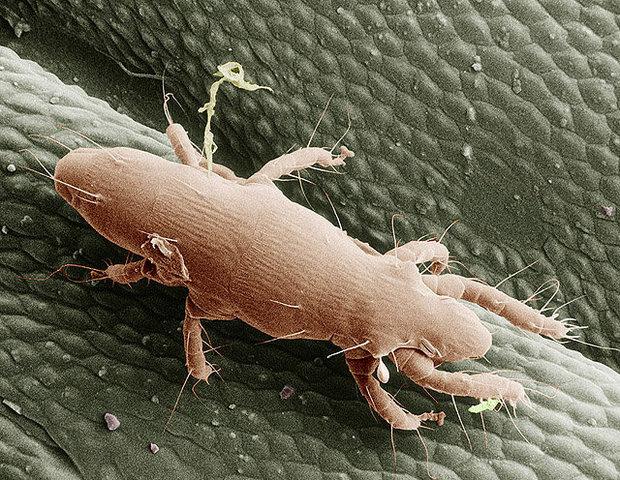If you have oak trees, particularly pin oak trees, in your landscape, it is not safe to go outside. Invisible mites fall out of these oak trees and land on anything and anyone under the branches. They bite and cause severe itching and extreme discomfort. I liken the bites to a chigger bite on steroids. These bites are not pleasant.
Oak leaf itch mites are microscopic, making them nearly invisible to the naked eye. They land on your body and instinctively start to bite. And ouch do they bite. To me they are new, but evidently there have been outbreaks of oak leaf mites in 2004, 2009, 2015 and 2016. The tiny spider-like creatures came to the U.S. from Central Europe in the 1990’s to Kansas City. Since that time, they have spread throughout the Midwest causing misery wherever they land.
The last two years, my oak trees have been attacked by a small midges that causes raised areas along the veins of the leaf. These vein pocket galls are not harmful to the oak tree, but oak leaf itch mites will feed on the larvae of these gall formers. My oak trees have been covered with these deformed leafs. It makes my yard ground zero for oak mites. I would love to enjoy these beautiful evenings outside on my deck, but not with oak leaf itch mites waiting to bite me again. Their bites are not worth going outside.
What can be done? Should we avoid going outside? Does bug repellent work on oak leaf itch mites? There are no easy answers. Ultimately, it is best to avoid contact with them as much as possible. That may be difficult since nearly 300,000 oak leaf itch mites fall from one tree per day. Windy days can drop more of them. If you are outside to rake leaves or mow your lawn, wear a hat, a long sleeve shirt and jeans. I would even spray some bug repellent on my shoulders and arms. It is also critical that you bathe after exposure to the mites and wash your clothes immediately, because they can crawl off and stay alive in your house.
I want these mites to go away forever, but it seems they are here to stay. A hard freeze will hasten their disappearance but they can overwinter and come back next year. Only a prolonged period of cold weather will adversely affect them. Right now, it doesn’t feel like that will happen any time soon. I wish I had better news. I guess we need an extended polar vortex to freeze them to death. That doesn’t sound very pleasant either.


